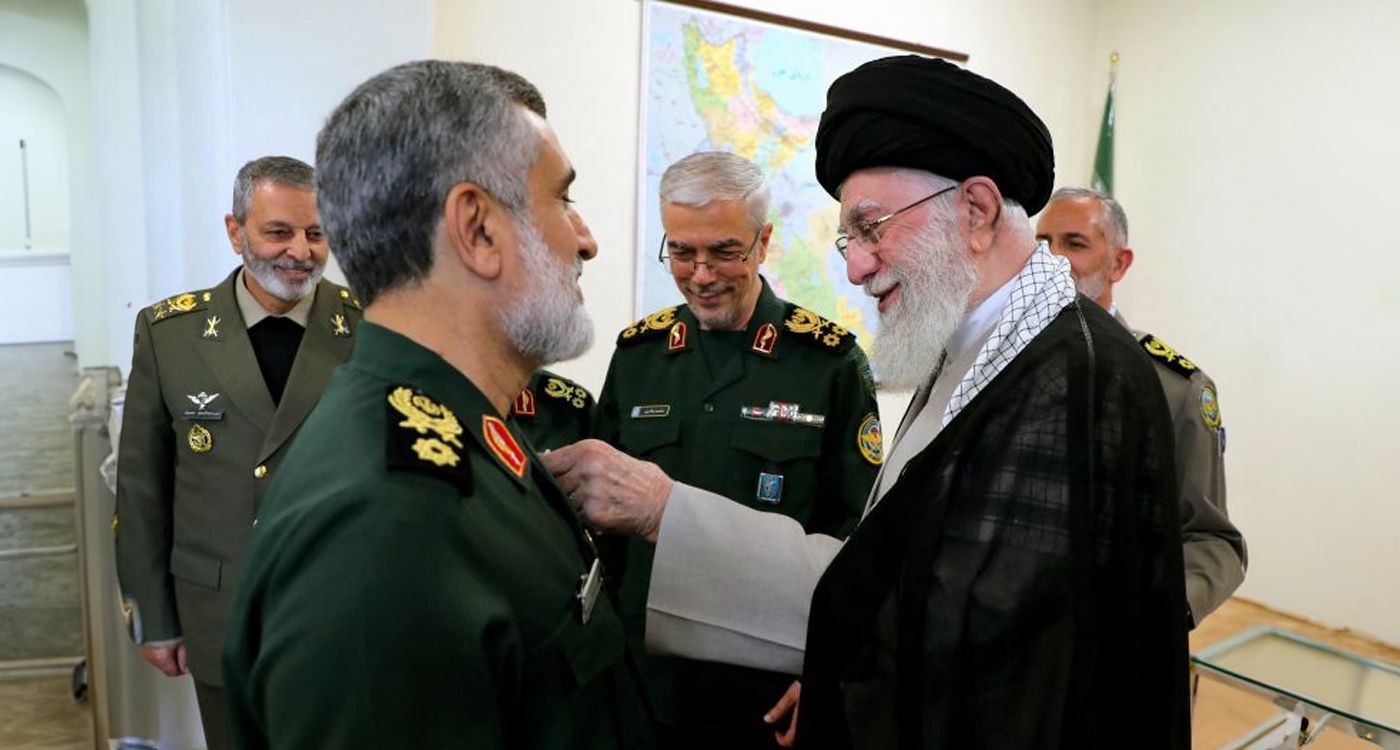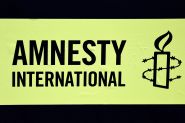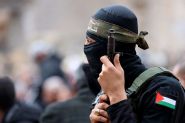- Home
- Middle East
- Iran Warns Israel Against Attacking Infrastructure

A handout picture provided by the office of Iran's Supreme Leader Ayatollah Ali Khamenei on October 6, 2024 shows him (R)decorating the Islamic Revolutionary Guard Corps' Aerospace Force Commander Brigadier General Amir Ali Hajizadeh (L) for plannig the Iranian attack on Israel. ©KHAMENEI.IR / AFP
Iran warned Israel on Tuesday against attacking any of its infrastructure amid fears of a possible Israeli assault on oil or nuclear sites following Iran's missile barrage last week.
The state television quoted Foreign Minister Abbas Araghchi as saying, "Any attack against infrastructure in Iran will provoke an even stronger response."
He spoke after Israel said it was preparing a response to Iran's October 1 missile attack on its arch-enemy, its second on the country in six months.
On Monday, an official statement quoted Araghchi as saying Iran did not seek war in the region.
On Friday, US President Joe Biden cautioned Israel against attacking oil installations in Iran, one of the world's top 10 producers of crude.
Islamic Revolutionary Guard Corps General Rassul Sanairad warned Israel on Sunday that any attack on nuclear or energy sites would cross a "red line."
Following the Israeli threat, the Fars news agency quoted him as saying, "Some political leaders have spoken of a possible change in Iran's nuclear policy."
In 2022, after an official said that Iran had the technical capability to produce a nuclear weapon, the country stressed that there had been no change in its nuclear ambitions.
Last year, Iran slowed the pace of its uranium enrichment. However, late in 2023, it accelerated the production of 60% enriched uranium, according to the International Atomic Energy Agency.
Enrichment levels of around 90% are required for military use.
Iran has always denied any ambition to develop a nuclear weapons capability, insisting its activities are entirely peaceful.
Any attack on Iranian nuclear sites "would have an impact on the kind of response by Iran," General Sanairad said.
Tehran says its attack on Israel, during which some 200 missiles were fired, was a response to the death in a Beirut airstrike of Hassan Nasrallah, leader of the Iran-backed Lebanese movement Hezbollah, and of Hamas political leader Ismail Haniyeh in Tehran.
Iran blamed Israel for Haniyeh's death, but Israel has not commented.
With AFP
Read more



Comments